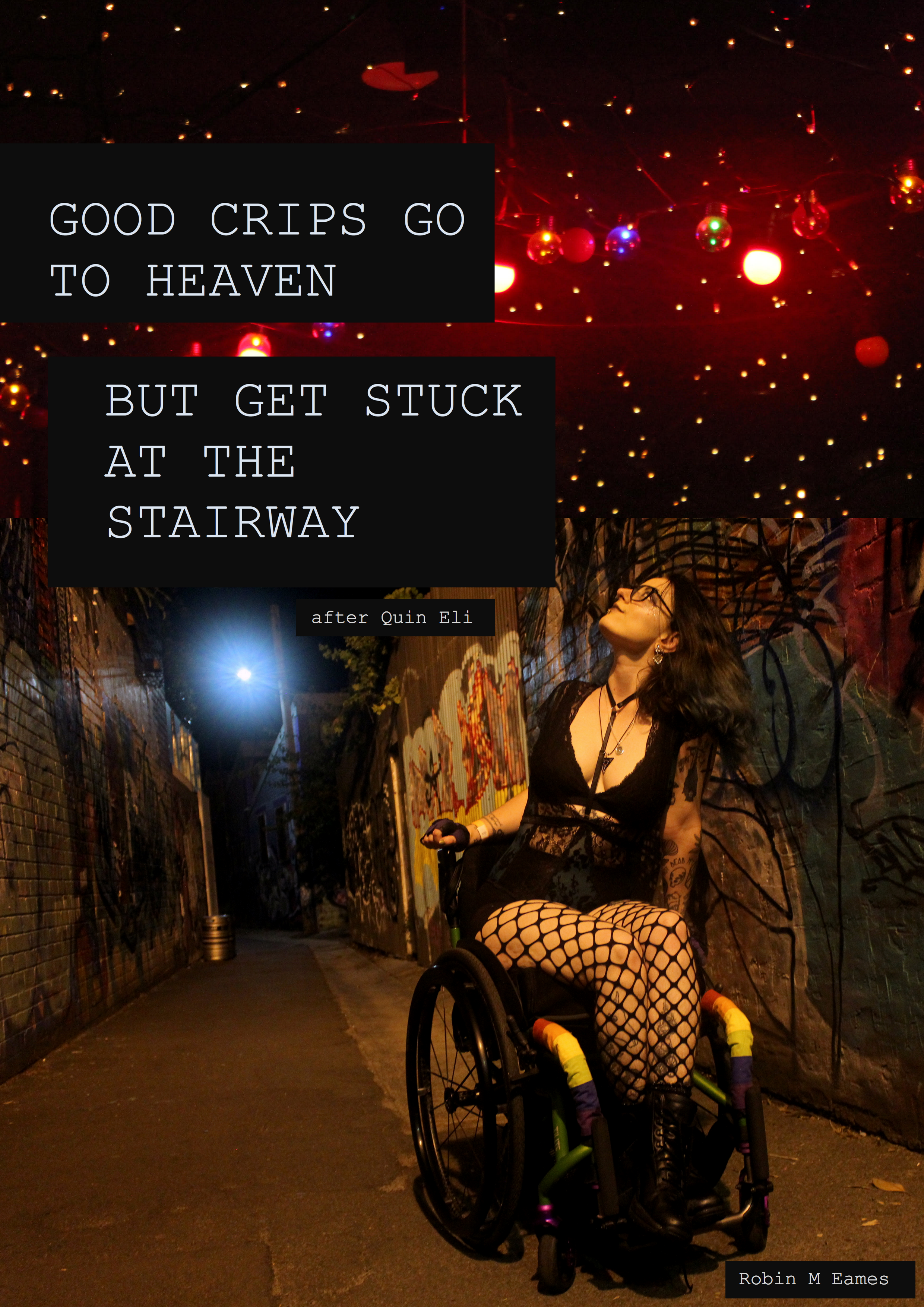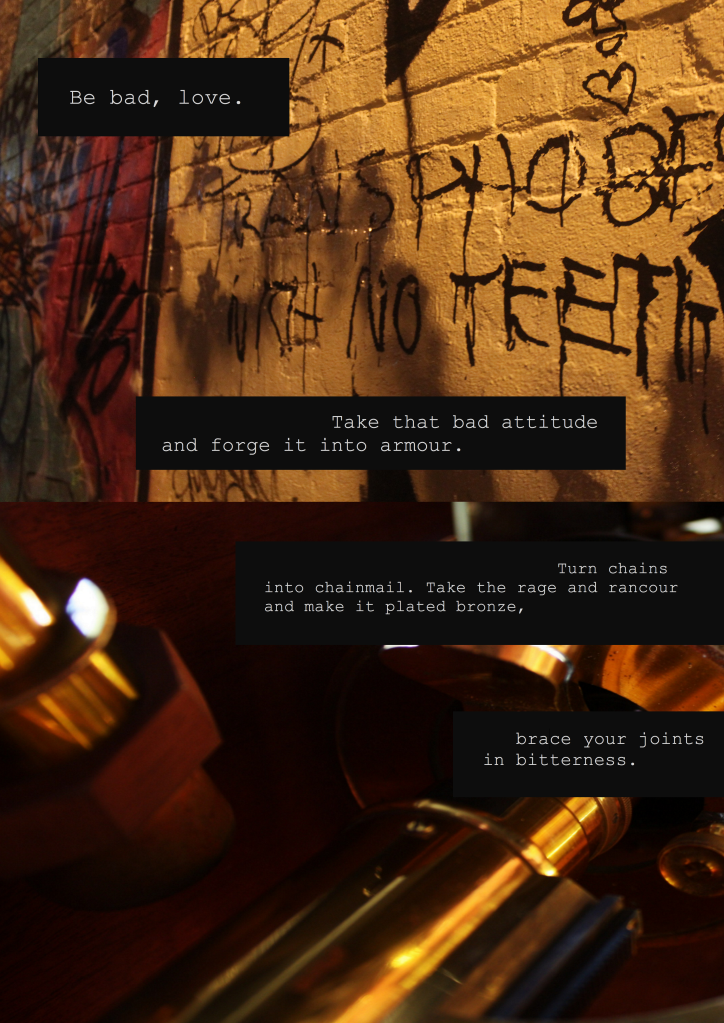This poem was initially published as a digital zine for Red Dirt Poetry Festival in 2020. The first few pages are attached below. You can read the full zine here and image descriptions here.
GOOD CRIPS GO TO HEAVEN BUT GET STUCK AT THE STAIRWAY
after Quin Eli
Be bad, love. Take that bad attitude
and forge it into armour. Turn chains
into chainmail. Take the rage and rancour
and make it plated bronze, brace your joints
in bitterness. Blaze apotropaic iron
out of acrimony, glare back at staring eyes.
Rebel and revolt. Forget that carceral logic,
be grassroots, be light and fire. Let your disabled body
be fierce and furious, let your disabled mind
be ardent and wild. Wrap steel around your heart
and let your heart stay soft. The life you have
is a life worth living. Be proud, love.
Be loud and unashamed. Fold fear into a shield,
let all of it reflect away. Don’t look back,
don’t dwell in regret. Let yourself seek redemption
without the tragic backstory, without justification
or explanation, without “what’s wrong with you”
or “what happened”. Let it happen.
Bite the hand. Demand, don’t ask.
If they care, they’ll fight beside you. Piss on pity
and inspiration, reject involuntary martyrdom.
Be that transgender menace, that lavender threat.
Be damned, love. You’re there already.
The world is burning. Take hell
and make it yours, be hell on wheels.
Be monstrous, be the bad example,
the bad influence, the bad cripple.
Be noncompliant. Speak in your own language.
Live fast, live strong. Fight for liberation
not assimilation. Remember solidarity,
stay strange, keep weird and queer,
and always channel anger into action.
You are loved and not alone. There is more than this
and more to come. Be joyous, my love, be bad.


![Blaze apotropaic iron
out of acrimony, glare back at staring eyes.
Rebel and revolt.
[image: a hand passing through flame; an x-ray of Robin’s cervical spine in flexion and extension, where their lip piercing is visible]](https://robinmeames.files.wordpress.com/2024/03/good-crips_03.png?w=724)
![Forget that carceral logic,
be grassroots, be light and fire.
[image: close-up of poppies; film photo of orange and yellow nemesia flowers]](https://robinmeames.files.wordpress.com/2024/03/good-crips_04.png?w=724)
![Let your disabled body
be fierce and furious, let your disabled mind
be ardent and wild.
[image: Robin wearing a colourful dress doing a wheelie in front of a graffiti-covered wall; a long exposure shot of a rainbow hoop, with colourful streams of light flaring out around a vague figure]](https://robinmeames.files.wordpress.com/2024/03/good-crips_05.png?w=724)
![Wrap steel around your heart
and let your heart stay soft. The life you have
is a life worth living.
[image: vibrantly coloured cardiac echoes of Robin’s wonky heart; eucalypts at dusk]](https://robinmeames.files.wordpress.com/2024/03/good-crips_06.png?w=724)


